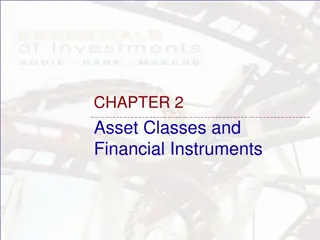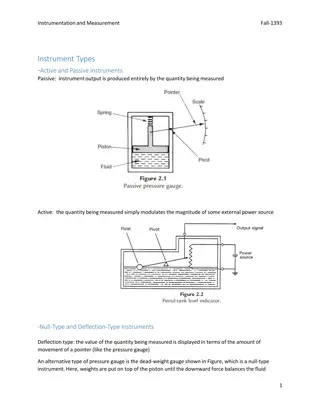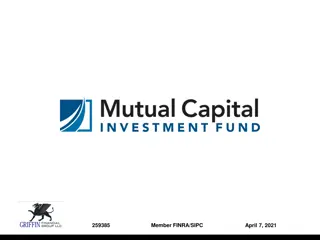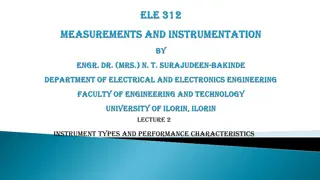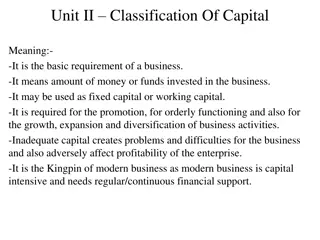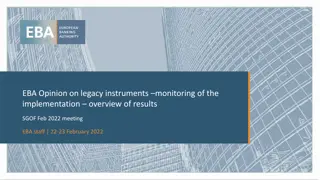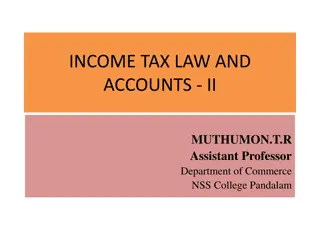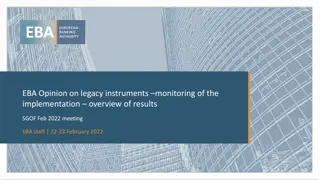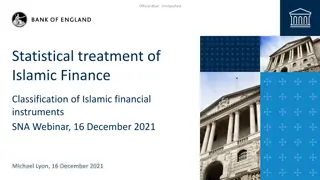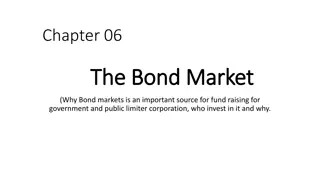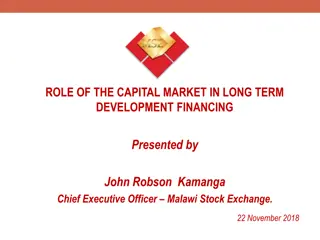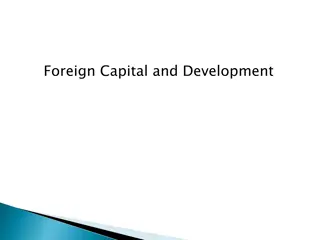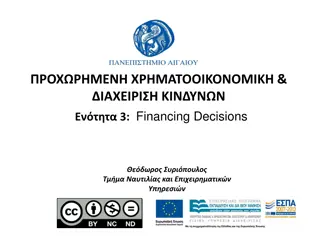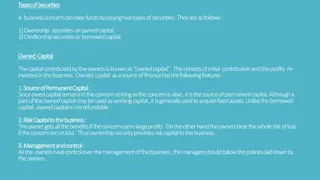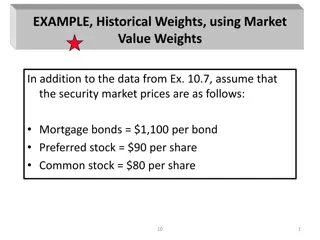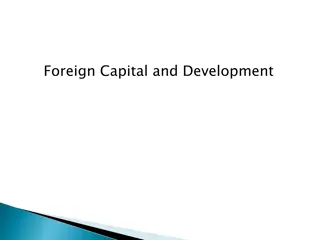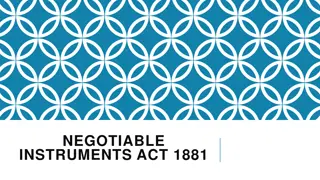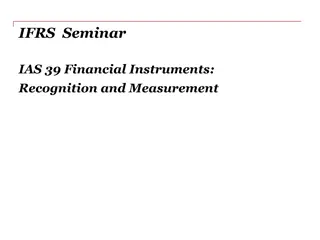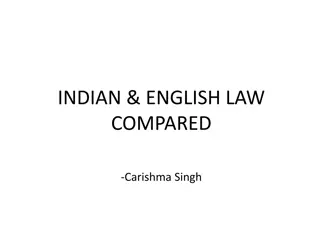Understanding Various Instruments of the Capital Market
Equity shares, preference shares, debt capital, equipre, sweat equity shares, and global depository receipts are key instruments in the capital market. Each type offers unique features and benefits for investors and companies alike, influencing ownership, dividends, voting rights, and trade facilitation. It's essential to comprehend these instruments to make informed investment decisions in the financial markets.
Download Presentation

Please find below an Image/Link to download the presentation.
The content on the website is provided AS IS for your information and personal use only. It may not be sold, licensed, or shared on other websites without obtaining consent from the author. Download presentation by click this link. If you encounter any issues during the download, it is possible that the publisher has removed the file from their server.
E N D
Presentation Transcript
Equity share:- Equity shares are also known as ordinary shares of the company. Equity shareholders are the real owner of the company. The overall control of the company is in the hands of the equity shareholders. Preference share:- Preference shares have certain preference as compared to other kinds of shares. Two types of preferences are available to these shares:- A. Preference for payment of dividend- The dividend is first paid to preference shareholders whenever the company has distributed the profit. B. At the time of liquidation of the company, preference is given to them in repayment of capital. Preference share capital is returned after paying outsider creditors. A fixed rate of dividend is paid on preference share capital. But they have not voting right and do not actively participate in the management of the company.
Debt capital:- Debt capital refers to debenture and bonds. It is also termed as creditorship securities. Debentures and bonds occupy an important place in the financial policy of a firm. A debenture or a bond may be defined as acknowledgement of a debt. It represents a certificate issued by a company under its seal acknowledging a debt due by it to it's holders. Fully convertible debentures with interest:- This is a dead instrument that is fully converted over a specified period into equity shares. The conversion can be in one or several phases. When the instrument is a pure that instrument, interest is paid to the investor. After conversion, interest payment cease on the portion that is converted. If project finance is raised through an FCD issue, the investor can earn interest even when the project is under implementation. Once the project is operational, the investor can participate in the profits through share price appreciation and dividend payments.
Equipre:- They are fully convertible Cumulative preference share. This instrument is divided into two parts namely part A and part B. Part A is convertible into equity shares automatically/ compulsorily on date of allotment without any application by the allotted. Part B is redeemed at par or converted into equity after a lock in period at the option of the investor, at a price 30% lower than the average market price. Sweat equity shares:- The phrase "sweat equity" refers to the equity shares given to the company's employee on favourable terms, in recognition of their work. Sweat equity usually takes the form of giving options to the employees to buy shares of the company, so they become part owners and participate in the profits, apart from earning salary. This gives a boost to the sentiments of employees and motivates them to work harder towards the goal of the company. The Company Act defines sweat equity share as equity share issued by the company to employees or directors at a discount or for consideration other than cash for providing knowhow are making available rights in the nature of intellectual property rights or various additions, by whatever name called.
Global depository receipts and American depository receipts:- A negotiable certificate held in the bank of one country (depository) representing a specific number of shares of a stock traded on an exchange of another country. GDR facilitate trade of shares, and are commonly used to invest in companies from developing or emerging markets. GDR prices are often close to the values of related shares, but they are traded and settled independently of the underlying share.


